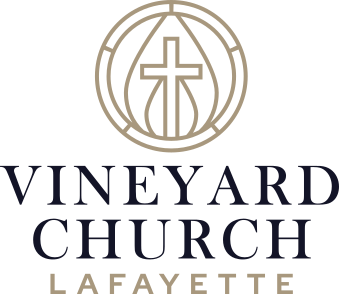“Then someone called from the crowd, “Teacher, please tell my brother to divide our father’s estate with me.”” Luke 12:13 (NLT)
This man connects to a universal human impulse—the desire for justice. Jesus responds to the man’s demand by questioning his motives. Is greed or justice behind the demand?
Here Jesus uses a story to answer the man’s question. First you have a rich man…in a society where the rich are the recipients of God’s blessing. But the man doesn’t see his wealth as a blessing—it is a problem to be addressed: ‘What am I to do with all this extra grain? I’ll build bigger barns.’
He doesn’t see himself as a steward of what God has given him—‘what does God want me to do with this excess?’ Instead, he sees himself as self-made. He earned it. He can decide how use it. He has a problem, not an opportunity. He presumes to be in control.
The crops seem more than sufficient for he and his family. He never thinks of the poor as a ‘solution’. He never even consults another person. He is the god of his own world.
This is the greedy man. Aristotle once remarked that the surest way to destroy someone was to give the person his own way. If there is no God, then there will be no accounting when we die. We can build bigger barns, feed our greed and be selfish and self-determined and then die, and that would be it. But if God exists, then He says there will be an accounting. And anyone who in their greed only stores up treasures in this life and has no eternal bank account will find themselves bankrupt in the life to come.
All that we have belongs to God. Let’s honor Him by how we handle it.
-Pastor Dino Griffin
This man connects to a universal human impulse—the desire for justice. Jesus responds to the man’s demand by questioning his motives. Is greed or justice behind the demand?
Here Jesus uses a story to answer the man’s question. First you have a rich man…in a society where the rich are the recipients of God’s blessing. But the man doesn’t see his wealth as a blessing—it is a problem to be addressed: ‘What am I to do with all this extra grain? I’ll build bigger barns.’
He doesn’t see himself as a steward of what God has given him—‘what does God want me to do with this excess?’ Instead, he sees himself as self-made. He earned it. He can decide how use it. He has a problem, not an opportunity. He presumes to be in control.
The crops seem more than sufficient for he and his family. He never thinks of the poor as a ‘solution’. He never even consults another person. He is the god of his own world.
This is the greedy man. Aristotle once remarked that the surest way to destroy someone was to give the person his own way. If there is no God, then there will be no accounting when we die. We can build bigger barns, feed our greed and be selfish and self-determined and then die, and that would be it. But if God exists, then He says there will be an accounting. And anyone who in their greed only stores up treasures in this life and has no eternal bank account will find themselves bankrupt in the life to come.
All that we have belongs to God. Let’s honor Him by how we handle it.
-Pastor Dino Griffin
Recent
Archive
2023
January
Eternal LifeWhat can man do to me?All About LoveGenerous GiversFull of the SpiritDesperately HungryDeathJobLighting FiresLovers of JesusNew BeginningsNo CompromiseRememberSatisfactionServe SomebodyStewardshipThat ManTreasureIn God's HandsDoubt in The DarkCount the CostGod's CurrencyGod\'s HouseDiscipline of LoveBody of ChristMeekHands of GodNew CreationOur Real SelvesQuestions
February
March
April
Jesus WeptPulling Out the StopsLoveSanctificationFountainsSurrender to GodVacationIt Is WrittenForgivenessOverwhelmingOverworkedAngerAll About LoveBody of ChristBrazen SerpentCashing InChrist- God's CurrencyGentleness & HumilityEternal LifeDig DeepDoubt in The DarkGod Is FaithfulGod the FatherGod's HouseGod's TimingHoly GodIn His GripJacobNearness to GodNo Ordinary Kingdom
Categories
no categories
Tags
no tags
